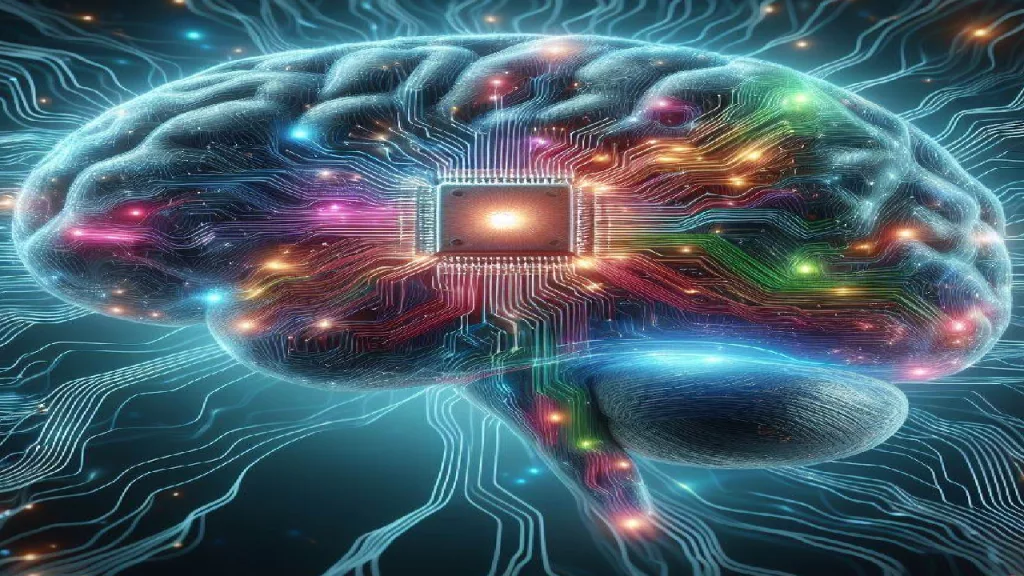Tech billionaire Elon Musk has claimed his Neuralink company has successfully implanted one of its wireless brain chips in a human.
Billionaire technologist Elon Musk announced this week that his company Neuralink has implanted its brain-computer interface into a human for the first time. The recipient was “recovering well,” Musk wrote on his social media platform X (formerly Twitter) on Monday evening, adding that initial results showed “promising neuron spike detection”—a reference to brain cells’ electrical activity.
Each wireless Neuralink device contains a chip and electrode arrays of more than 1,000 superthin, flexible conductors that a surgical robot threads into the cerebral cortex. There the electrodes are designed to register thoughts related to motion. In Musk’s vision, an app will eventually translate these signals to move a cursor or produce text—in short, it will enable computer control by thinking. “Imagine if Stephen Hawking could communicate faster than a speed typist or auctioneer. That is the goal,” Musk wrote of the first Neuralink product, which he said is named Telepathy.
In a post on X, formerly Twitter, he said “promising” brain activity had been detected after the procedure and the patient was “recovering well”.
The company’s goal is to connect human brains to computers to help tackle complex neurological conditions.
A number of rival firms have already implanted similar devices.
“For any company producing medical devices, the first test in humans is a significant milestone,” said Professor Anne Vanhoestenberghe of King’s College London.
“For the brain computer interface community, we must place this news in the context that whilst there are many companies working on exciting products, there are only a few other companies who have implanted their devices in humans, so Neuralink has joined a rather small group.”
The U.S. Food and Drug Administration had approved human clinical trials for Neuralink in May 2023. And last September the company announced it was opening enrollment in its first study to people with quadriplegia.
Monday’s announcement did not take neuroscientists by surprise. Musk, the world’s richest man, “said he was going to do it,” says John Donoghue, an expert in brain-computer interfaces at Brown University. “He had done the preliminary work, built on the shoulders of others, including what we did starting in the early 2000s.”
Precision Neuroscience, formed by a Neuralink co-founder, also aims to help people with paralysis. And its implant resembles a very thin piece of tape that sits on the surface of the brain and can be implanted via a “cranial micro-slit”, which it says is a much simpler procedure.
Existing devices have also generated results. In two separate recent US scientific studies, implants were used to monitor brain activity when a person tried to speak, which could then be decoded to help them communicate.
Telepathy, he said, would enable “control of your phone or computer, and through them almost any device, just by thinking”.
“Initial users will be those who have lost the use of their limbs,” he continued.
There has been no independent verification of Mr Musk’s claims, nor has Neuralink provided any information about the procedure he says has taken place.
Musk has a habit of suggesting big things but providing little detail, notes Ryan Merkley, director of research advocacy at the Physicians Committee for Responsible Medicine. “This is maybe the biggest example of that” because there’s no information available about the person who received the implant or their medical condition, Merkley points out. “Depending on the patient’s disease or disorder, success can look very different.”
“However, most of these interfaces require invasive neurosurgery and are still in experimental stages thus it will likely be many years before they are commonly available.”

